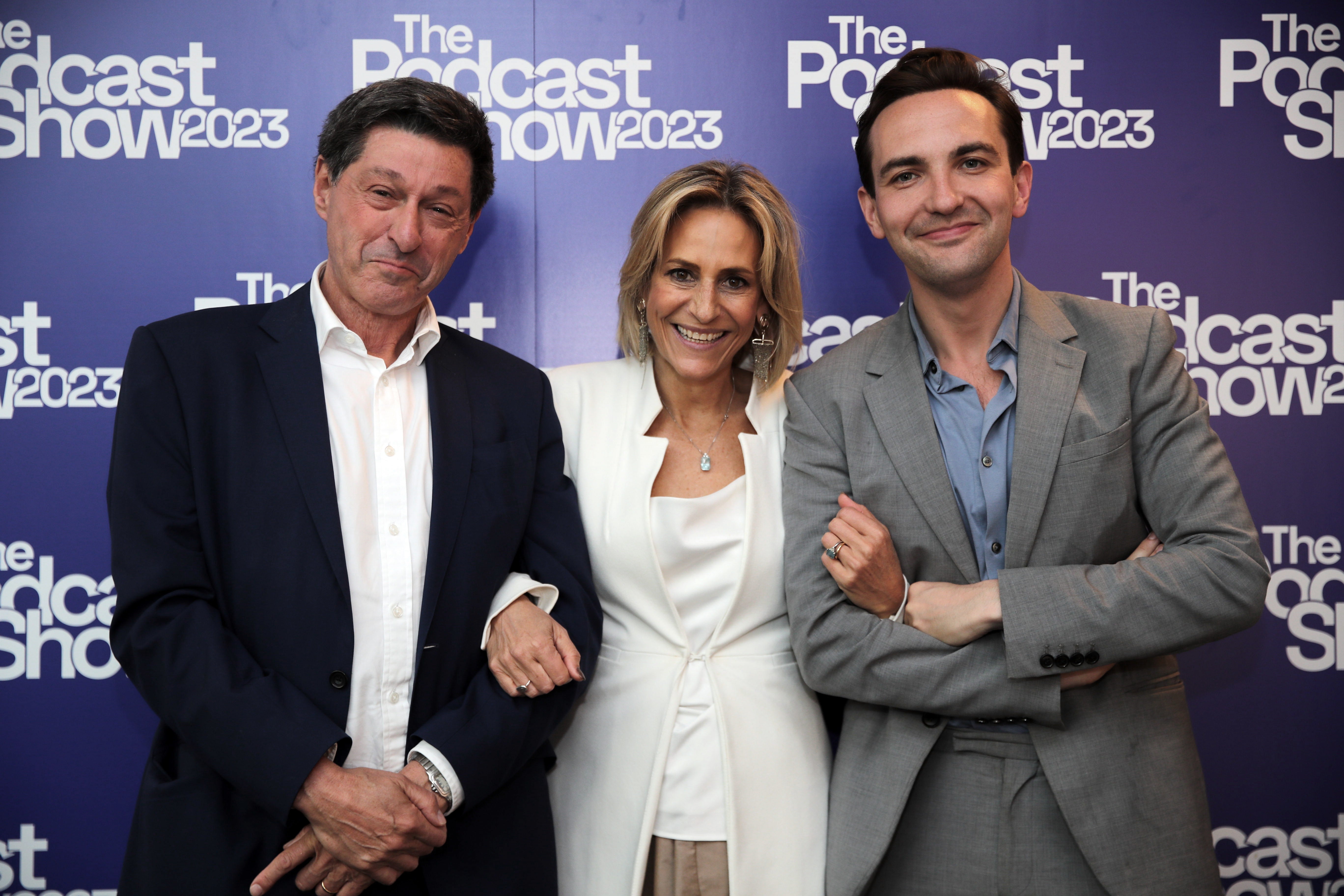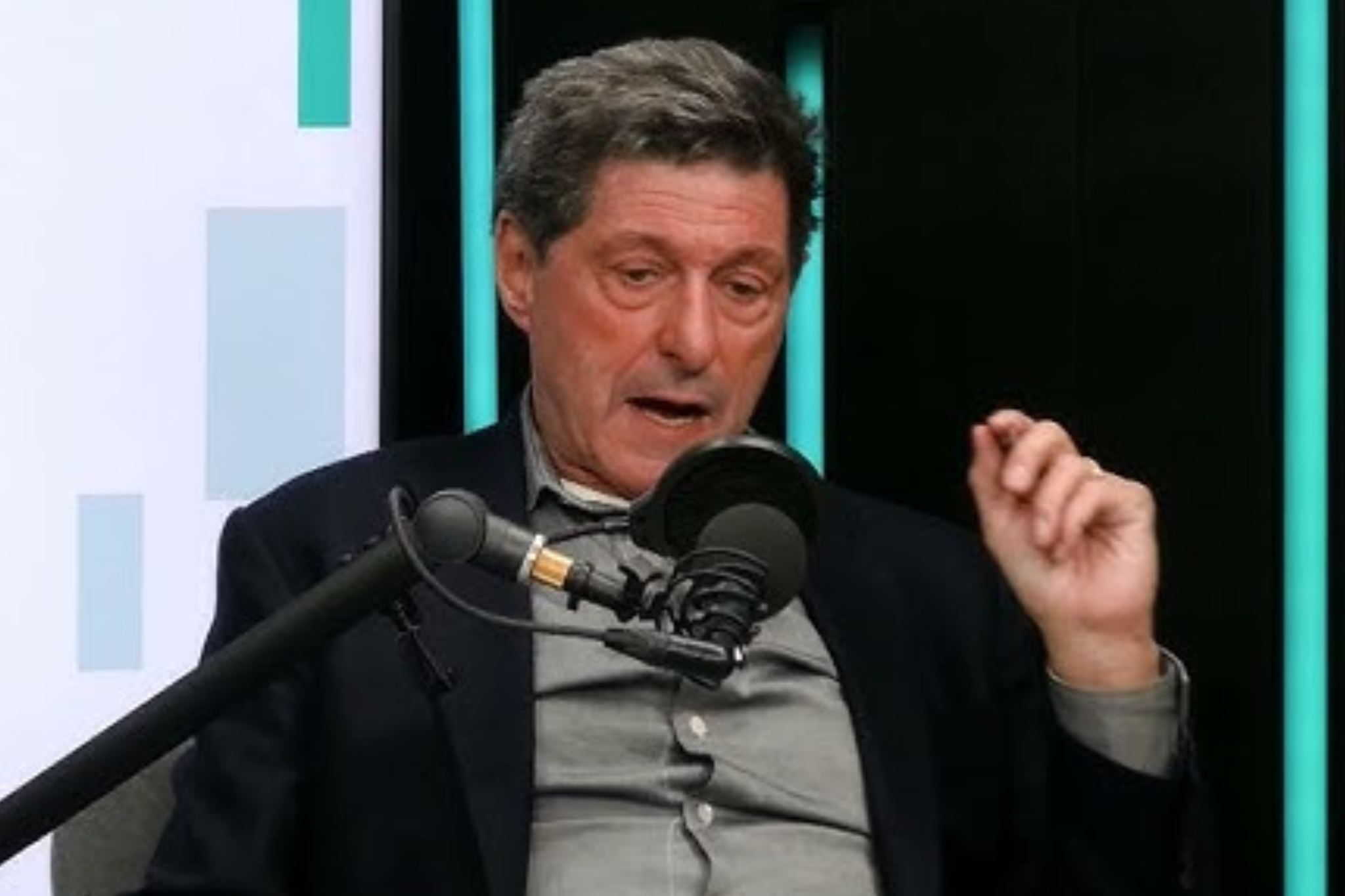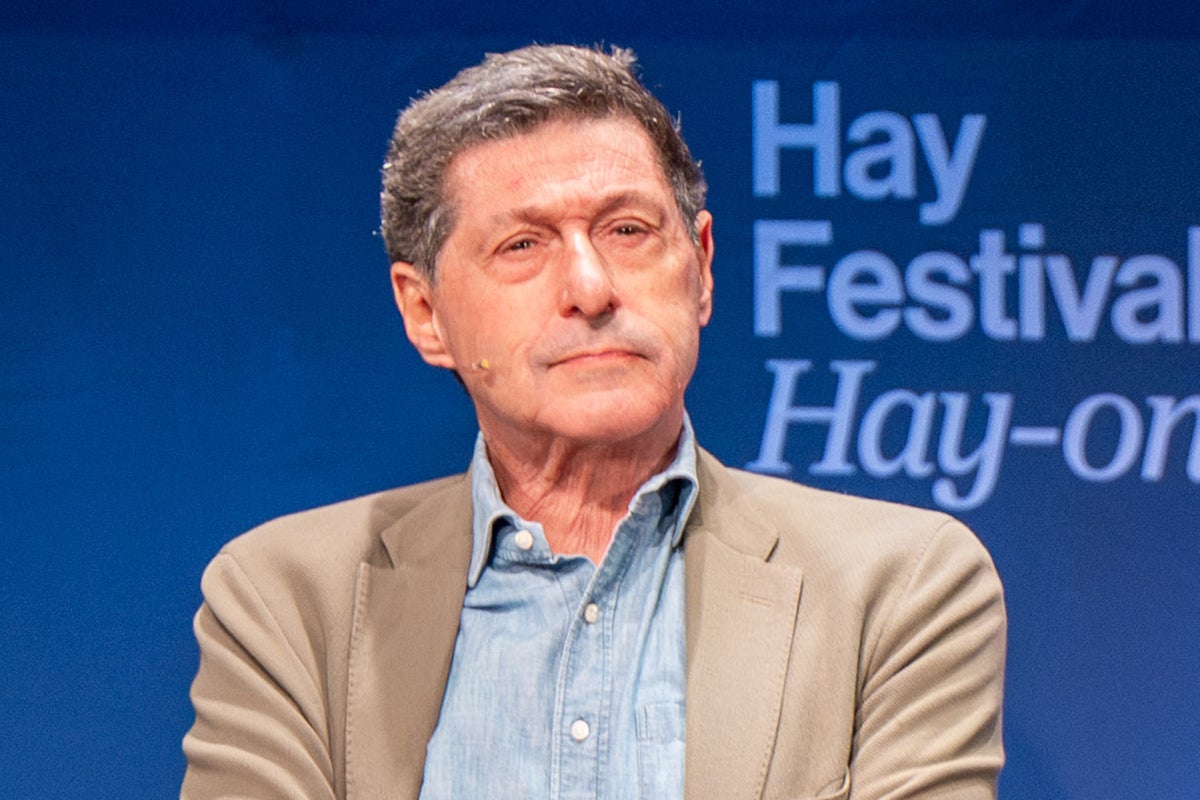Jon Sopel has said that the BBC’s “both sides-ism” is part of the reason he quit.
The former chief political correspondent joined the broadcaster at the age of 24. He resigned along with Emily Maitlis in 2022, and they launched a podcast, The News Agents, with Lewis Goodall that same year.
Sopel, 66, briefly spoke about his reasons for leaving the company during an appearance at the Hay Festival, which has partnered with The Independent for a second year.
In a panel moderated by The Independent’s Helen Coffey, Sopel appeared alongside philosopher and author AC Grayling and Jennifer Nadel, a journalist, barrister and author.
The subject of Sopel’s departure arose during a wider debate on the media coverage of Nigel Farage and his party Reform UK, which saw significant gains in the local elections this month.
The party gained outright control of 10 councils and won more than 600 seats. Reform also won two mayoral races and secured a fifth MP, Sarah Pochin, who won the seat in Runcorn and Helsby.
“I don’t think the media is enabling Farage,” Sopel told his fellow panellists. “We have to report the surge in support for Reform.
“Maybe you could say a few years ago, too much attention was given to him – and indeed, the ‘both sides-ism’ I found at the BBC was one of the things that drove me out after many, many years.”

“Both sides-ism” refers to the media giving credence to the opposing side of a cause, action, or idea in an effort to seem fair, or only for the sake of argument.
Sopel continued: “I thought that in our Brexit coverage, we just got it very, very wrong, to say, ‘On the one hand…’, ‘On the other…’, ‘Only time will tell… Jon Sopel, BBC News, Westminster.’

Watch Apple TV+ free for 7 day
New subscribers only. £8.99/mo. after free trial. Plan auto-renews until cancelled.
Try for free
ADVERTISEMENT. If you sign up to this service we will earn commission. This revenue helps to fund journalism across The Independent.

Watch Apple TV+ free for 7 day
New subscribers only. £8.99/mo. after free trial. Plan auto-renews until cancelled.
Try for free
ADVERTISEMENT. If you sign up to this service we will earn commission. This revenue helps to fund journalism across The Independent.
“I didn’t think that was journalism; I thought it was cowardice.”

Sopel went on to say that he believes the media has a “responsibility to report” what Mr Farage says and to “hold him accountable”.
“It’s not a question of platforming,” he said. “The BBC doesn’t platform Farage, they question him, and increasingly the scrutiny has to be there, firmly.”
In 2022, the year that he left the BBC, Sopel also spoke out against the broadcaster’s decision in 2017 to publish presenters’ salaries. “To have everybody suddenly know what you earn feels like a violation of your privacy,” he said at the time.
Following his departure from the broadcaster, Sopel has found huge success co-hosting his podcast with Maitlis and Goodall. Since its launch, The News Agents has established itself as one of the UK’s most popular daily news podcasts, celebrating 100 million downloads last July.
Speaking at Hay, Sopel gave some insight into what listeners are interested in. At the bottom of that list is climate change.
“If we put ‘climate change’ in the title of a podcast, the numbers dive,” he said. “It’s not that we don’t cover it, but you’ve got to accept that as a topic itself, people go, ‘Urgh, I know it’s terrible, but I can’t face listening to it.
“There are various topics where you get exhaustion [or] exasperation. People don’t know what to do; they feel powerless, and therefore they don’t want to listen to it.”
Sopel continued: “If we do ‘Famine in the Sahel’, the numbers fall off a cliff. Whereas if we do ‘Trump latest madness: what a clown show’ – fabulous.”
“Trump is fantastic for business if you’re a journalist. Terrible for the world, but fantastic for business. Climate change is really bad for business,” he concluded.


